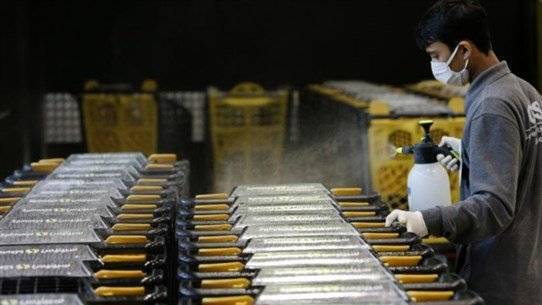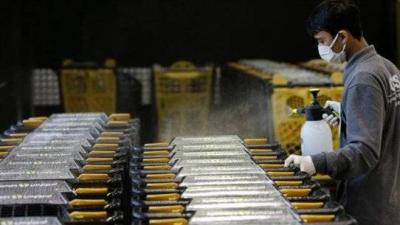It was expected that the mass emigration of foreign workers from Lebanon, since the onset of the financial collapse, would create an opportunity for Lebanese to fill the gap left in various sectors. However, data shows that many Lebanese still prefer unemployment over working in jobs considered "beneath them," even if they lack a university degree or manual skills. The existing economic model, based on rent and quick profit, has reinforced their historical disdain for certain professions and restricted others, with blatant racism, to certain foreign nationalities or even specific sects among other Lebanese. This reality has led most Lebanese to prefer unemployment or even emigration rather than "dirtying" their hands in jobs at gas stations, waste management, or in manual labor, among many other positions that have become exclusive to certain nationalities, draining the dollars of Lebanese that foreign workers sent back to their home countries. Thus, the Lebanese are left without dollars and without jobs.
**No Waste Workers!**
At the beginning of last month, the waste crisis exploded in the southern suburbs of Beirut as workers from "City Blue" stopped working due to not receiving their salaries. During the days of the strike, the municipalities of the area took over the company's tasks of sweeping, collecting, and transporting waste. This prompted the municipality of Burj al-Barajneh to "post an announcement seeking workers in case the crisis prolonged, but only two people applied for the job, both of whom were Lebanese," according to Deputy Mayor Zohair Jaloul, who wonders, "We hear daily about people needing work, and when an opportunity arose, no one applied. How can that be?"
The sector most affected by the emigration of foreign labor from Lebanon is the waste sector, which is now largely dependent on Lebanese labor. However, attracting Lebanese to work in this sector faces numerous challenges. Companies like "Ramco" and "City Blue" have been announcing for months their need for hundreds of workers without any success.
**600 Vacant Positions**
Walid Abu Saad, the general manager of "Ramco," announces "the need for 400 workers immediately. We have tried everything to recruit them but with no results." He clarifies that "since June 2020, we no longer have foreign workers in the company. The staff currently ranges between 700 and 800 individuals, 95% of whom are Lebanese. The problem we face is the instability of workers in their jobs despite the benefits they receive. We hire 100, and after a while, 80 leave, and we have to search for workers again."
Interestingly, the salary of a cleaning worker in the company exceeds that of administrative staff with university degrees. According to Abu Saad, "we pay the worker 100,000 Lebanese pounds daily, not including overtime. Thus, his monthly salary ranges from 4 to 5 million Lebanese pounds. This is the net wage, as the company provides workers wishing to stay there with accommodation and meals, thus saving them transportation and laundry costs. In contrast, an administrative employee in the company, who previously worked in the banking sector and holds a master's degree, earns 5 million pounds per month, bearing the costs of transportation, food, and drinks."
The same scenario is repeated with "City Blue," whose chairman Milad Maouad points out that their workforce across various sectors totals about 700 employees "and we still need 200 more. The difficulty we face is that the salaries of foreign workers are set in dollars, while with Lebanese, you must continuously keep up with the cost of living and transportation expenses. At the moment you don't adjust for these changes, many leave, and we have to hire again, although we regularly adjust salaries according to the cost of living." He explains that "a cleaning worker earns around 110,000 pounds daily plus accommodation and food if he wishes to live within the facility."
What is common among both companies is that the overwhelming majority of workers and job applicants are from the north, particularly Akkar and Tripoli, making it more difficult to attract them due to transportation costs and the distance involved.
**Manual Labor**
The solar energy sector, which is enjoying unprecedented demand, is attracting Lebanese with expertise in electrical and metalworking fields after previously facing stiff competition from Syrian workers. However, the persistence of Lebanese refusing to work in unskilled tasks, such as carrying solar panels and batteries and assisting in installations, remains strong, according to sources from several companies operating in the field, "where Lebanese still avoid these jobs, mostly relying on Syrians." The daily wage for such workers does not fall below "10 to 15 dollars a day. If they work on 20 projects monthly, their income will not be less than 7 million pounds. Yet, we still find difficulty in finding Lebanese to work in this field."
**Gas Stations**
In the fuel sector, it seems that Lebanese prefer standing in lines at gas stations and profiting from trading in diesel and gasoline on the black market rather than working at the stations and earning a guaranteed monthly salary. According to George Brax, a member of the Gas Station Owners Syndicate, "it is rare to find a Lebanese willing to work at the stations. We tried employing Lebanese since before the crisis, but we were unsuccessful, and if we are lucky enough to find a Lebanese willing to work in filling gasoline, it is very difficult to find one willing to work in car washing." Regarding worker salaries, Brax explains that "the wage for workers at gas stations varies from one station to another depending on sales and working hours, but generally, the average salary is no less than 150 dollars a month." He asserts that "it is difficult to accurately determine the number of foreign workers at the stations, but we can conclude that the number exceeds 10,000 if we consider the existence of 3,500 stations, each employing about 3 workers." This sector alone drains around 19 million dollars annually, which goes out of Lebanon and could have been retained if Lebanese were willing to work in this field.




